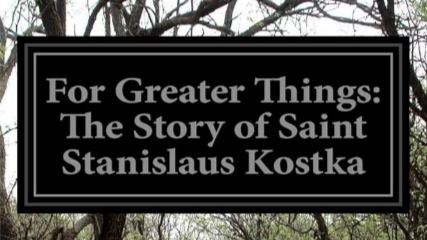Chapter II-For Greater Things
byChapter II – For Greater Things begins with a growing tension in Vienna, as Paul Kostka and John Bilinski realize that Stanislaus had not returned home. They were familiar with his quiet but resolute nature, and his recent talk about leaving for Augsburg weighed heavily on their minds. The realization struck that this was not a mere absence—it was an escape. His admiration for Peter Canisius, the Jesuit provincial, and his open longing to join the Society of Jesus had not gone unnoticed. Though they had previously dismissed his intentions as youthful dreams, Stanislaus’s disappearance confirmed their fears. The Jesuit college in Augsburg became the logical destination, and with urgency, they prepared to pursue him. But daylight had faded, and travel at night was unsafe, forcing them to wait until morning. Their frustration grew as their host, Senator Kimberker, agreed to join them, lending further seriousness to the search.
At first light, they set out, determined to intercept Stanislaus before he reached his goal. Their journey took them along roads that twisted through the countryside, searching inns and relying on word of mouth for clues. At one rest stop, they discovered that Stanislaus had indeed been there—but the landlord, perhaps out of sympathy or prudence, chose silence. Despite their questions and offers, no useful information was provided. Just when their hopes began to fade, they spotted a boy walking along a path, dressed like a peasant but with a familiar gait. Paul felt a sudden jolt of recognition. Though Bilinski and Kimberker dismissed the figure as a mere traveler, Paul’s instincts told him otherwise. He ordered the carriage stopped and ran after the boy down a narrow lane.
But their efforts met resistance—both literally and spiritually. The horses refused to move, spooked by an unseen force, and the carriage rocked violently as if to throw them off course. A heavy stillness fell over the group, and Paul, shaken, interpreted the moment as a sign that divine power was protecting Stanislaus. Against every urge to press forward, they turned back, convinced that further pursuit would be futile. That moment—where nature itself seemed to intercede—became a turning point, revealing the spiritual gravity of Stanislaus’s journey. They returned to Vienna empty-handed, burdened by failure and the sense that something far greater was at work than they could understand or control.
While his pursuers were halted, Stanislaus pressed on, undeterred and filled with peace. He had avoided the main roads, traveling through forests and along small streams to avoid detection. When needed, he relied on the charity of strangers, who were moved by his sincerity and determination. Each step he took was marked not by fear, but by deep conviction that he was walking toward a higher calling. His escape wasn’t merely an act of defiance—it was a testament to courage rooted in faith. Though still a teenager, he displayed wisdom and resilience well beyond his years. He carried nothing of value, but his presence inspired those he met, as if they sensed the sacredness of his mission even without knowing its full purpose.
Stanislaus’s journey toward Augsburg becomes a portrait of spiritual fortitude. Alone and exposed to the elements, he faced the uncertainty of the road with unshakable trust. His goal was not comfort or admiration—it was to follow the path he believed God had laid before him. That clarity gave him strength to endure physical hardship and the emotional weight of abandoning his home and family. His faith wasn’t theoretical; it was lived out in aching feet, empty stomachs, and whispered prayers beneath the open sky. His pilgrimage reflects the profound truth that divine calling often requires human sacrifice—and yet, through that surrender, something beautiful is born.
This chapter reveals Stanislaus not as a passive recipient of grace but as an active seeker of it. His spiritual determination turns a simple escape into an act of sanctity. Each encounter, each silent mile, adds to the legacy that would one day inspire generations. In turning away from comfort and security, he moves closer to his true home—not just in Augsburg, but in the heart of the divine purpose he was born to fulfill.

